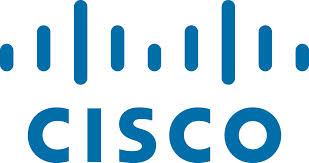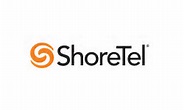Monday, December 26, 2005
Canadian Market Outlook From UBS
Analyst Jeff Fan from the Toronto office of UBS was nice enough to share some of his recent research notes on our major operators. He doesn't mind my passing on some highlights, so I just thought I'd share them with you here.
BCE
- Big focus is cost savings, embodied by their Galileo initiative. So far, the results have been subpar, with cost savings dropping from $122 million in Q2 to $111 million in Q3. UBS expects savings to accelerate going forward, starting at $138 million in Q4, and hitting $250 million in Q4 of 2006. That's an aggressive program, and its success is tied largely to realizing savings in network migration at the edge. In fact, only 12% of their savings are expected to come from core network migration to IP, which implies that the Opex efficiencies created by IP have already been realized.
Translation - the bulk of their cost savings going forward will have to come from getting their enterprise customers to transition from TDM to IP. That's easier said than done, and this process takes time, as enterprises tend to do this gradually instead of all at once. Jeff's research note points out that a compounding factor is that although IP services create Opex savings, they also yield lower margins compared to traditional data services. So, the cost savings come with a price, so to speak. Reducing costs and maintaining margins is a difficult balancing act for sure.
- The impact of cable telephony will really be noticeable on 2006. Jeff's research indicates that the MSOs added 208,000 phone lines in 2005. This is just in markets served by Bell - Ontario and Quebec - so this reflects the total impact of the 3 MSOs operating in these markets - Rogers, Videotron and Cogeco. For 2006, this total is expected basically double to 389,000. Interestingly, Videotron accounts for the vast majority of the numbers in 2005. Back in Q1, they were adding a bit more than 1,000 installs a week. In Q2, this rose to 2,000, and by Q3 it was just over 4,000. However, Jeff expects the mix to change quite a bit next year, with Videotron's growth rate slowing down, and Rogers accounting for 60% of the new adds. That will be a very interesting development to follow for sure.
- Key conclusion - IP is impacting Bell in a big way, and they have to cut costs to stay competitive. The research note suggests Bell may have to initiate headcount reductions to achieve some direct savings. Another interesting comment is the idea of creating an income trust for their rural lines. This wouldn't surprise me, and it's consistent with how the big RBOCs, especially Verizon, are looking at their rural operations. These are expensive markets to service, and offer limited upside as they move to IP.
Telus
- UBS is bullish on Telus, but mainly on the strength of their wireless operations. Like BCE, cost reduction is a front-burner issue, especially just coming out of a long and difficult labor settlement.
- MTS Allstream has been viewed as a logical acquisition target for some time. It would truly create a national divide, with Bell (and Aliant) ruling east of Manitoba, and Telus ruling on the west side of the divide. Jeff's view is that this is not a near-term priority for Telus, which I agree with. Also, the MTS/Allstream entity is still finding its legs, and I have never believed they had the horses to be a true national operator.
Rogers
- Unlike the telcos, cost reduction isn't the biggest challenge. Rogers made two significant acquisitions in 2005 with Microcell and Call Net (Sprint Canada). These moves have made Rogers the #1 national wireless operator, and a bona fide telecom player overnight. The priority here is to integrate these businesses effectively under the Rogers umbrella. No argument there.
- Rogers now has all the pieces for a full Quad Play, something no other MSO in North America is close to doing. They have a strong push for FMC now, and Jeff sees this as another key priority in 2006. This means not only integrating existing services into attractive bundles, but creating new offerings based on these synergies.
- UBS does not see Rogers making moves to consolidate the cable market in 2006. Agreed. It's not a seller's market, as the other major MSOs are in growth mode with telephony and VOD. There has been talk of Bell going after Shaw, which would be a big concern for Telus. That would be quite the story, but Bell has bigger things on their plate right now.
- Cable telephony - marketing efforts for the Home Phone service will ramp up in 2006, and UBS estimates Rogers will add 236,000 lines next year. To date, the service has been marketed very conservatively, largely in order to retain existing Call Net phone customers in the Rogers fold. Next year, their target will expand to attract new customers, likely using some aggressive bundling.
BCE
- Big focus is cost savings, embodied by their Galileo initiative. So far, the results have been subpar, with cost savings dropping from $122 million in Q2 to $111 million in Q3. UBS expects savings to accelerate going forward, starting at $138 million in Q4, and hitting $250 million in Q4 of 2006. That's an aggressive program, and its success is tied largely to realizing savings in network migration at the edge. In fact, only 12% of their savings are expected to come from core network migration to IP, which implies that the Opex efficiencies created by IP have already been realized.
Translation - the bulk of their cost savings going forward will have to come from getting their enterprise customers to transition from TDM to IP. That's easier said than done, and this process takes time, as enterprises tend to do this gradually instead of all at once. Jeff's research note points out that a compounding factor is that although IP services create Opex savings, they also yield lower margins compared to traditional data services. So, the cost savings come with a price, so to speak. Reducing costs and maintaining margins is a difficult balancing act for sure.
- The impact of cable telephony will really be noticeable on 2006. Jeff's research indicates that the MSOs added 208,000 phone lines in 2005. This is just in markets served by Bell - Ontario and Quebec - so this reflects the total impact of the 3 MSOs operating in these markets - Rogers, Videotron and Cogeco. For 2006, this total is expected basically double to 389,000. Interestingly, Videotron accounts for the vast majority of the numbers in 2005. Back in Q1, they were adding a bit more than 1,000 installs a week. In Q2, this rose to 2,000, and by Q3 it was just over 4,000. However, Jeff expects the mix to change quite a bit next year, with Videotron's growth rate slowing down, and Rogers accounting for 60% of the new adds. That will be a very interesting development to follow for sure.
- Key conclusion - IP is impacting Bell in a big way, and they have to cut costs to stay competitive. The research note suggests Bell may have to initiate headcount reductions to achieve some direct savings. Another interesting comment is the idea of creating an income trust for their rural lines. This wouldn't surprise me, and it's consistent with how the big RBOCs, especially Verizon, are looking at their rural operations. These are expensive markets to service, and offer limited upside as they move to IP.
Telus
- UBS is bullish on Telus, but mainly on the strength of their wireless operations. Like BCE, cost reduction is a front-burner issue, especially just coming out of a long and difficult labor settlement.
- MTS Allstream has been viewed as a logical acquisition target for some time. It would truly create a national divide, with Bell (and Aliant) ruling east of Manitoba, and Telus ruling on the west side of the divide. Jeff's view is that this is not a near-term priority for Telus, which I agree with. Also, the MTS/Allstream entity is still finding its legs, and I have never believed they had the horses to be a true national operator.
Rogers
- Unlike the telcos, cost reduction isn't the biggest challenge. Rogers made two significant acquisitions in 2005 with Microcell and Call Net (Sprint Canada). These moves have made Rogers the #1 national wireless operator, and a bona fide telecom player overnight. The priority here is to integrate these businesses effectively under the Rogers umbrella. No argument there.
- Rogers now has all the pieces for a full Quad Play, something no other MSO in North America is close to doing. They have a strong push for FMC now, and Jeff sees this as another key priority in 2006. This means not only integrating existing services into attractive bundles, but creating new offerings based on these synergies.
- UBS does not see Rogers making moves to consolidate the cable market in 2006. Agreed. It's not a seller's market, as the other major MSOs are in growth mode with telephony and VOD. There has been talk of Bell going after Shaw, which would be a big concern for Telus. That would be quite the story, but Bell has bigger things on their plate right now.
- Cable telephony - marketing efforts for the Home Phone service will ramp up in 2006, and UBS estimates Rogers will add 236,000 lines next year. To date, the service has been marketed very conservatively, largely in order to retain existing Call Net phone customers in the Rogers fold. Next year, their target will expand to attract new customers, likely using some aggressive bundling.
Subscribe to:
Post Comments (Atom)











No comments:
Post a Comment